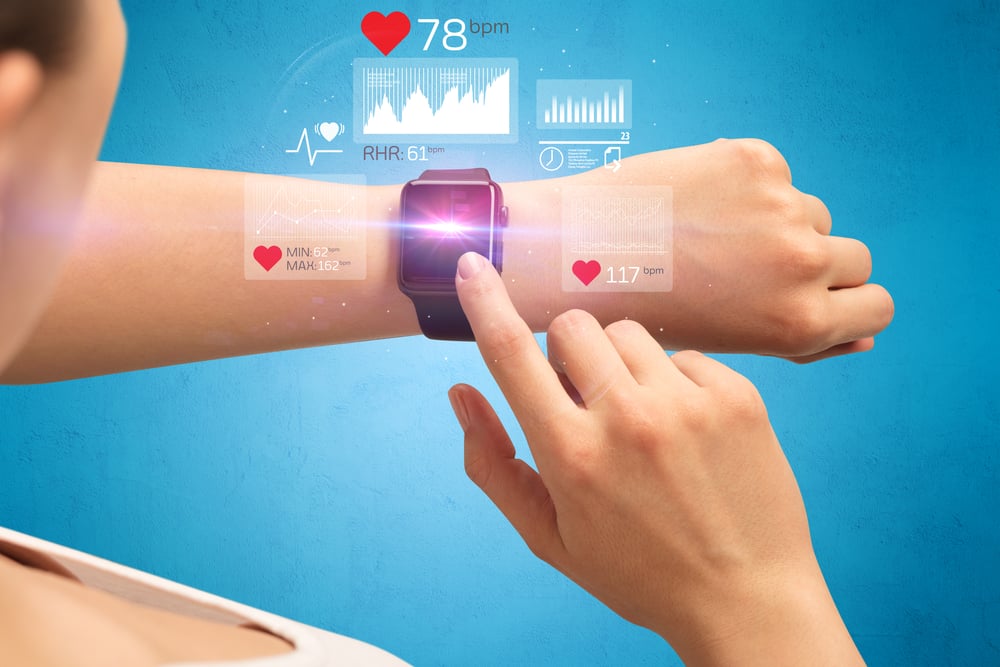
Utilizing Data from Wearable Devices
A member recently asked about liabilities associated with the utilization of data from nonprescription consumer wearable devices that track various health statuses (e.g., heart rate, blood pressure, activity levels, glucose levels). In our response we discuss the potential risks of utilizing such data and provide information and resources to consider.
The wearable medical device market is rapidly expanding—Deloitte Global predicts that nearly 440 million consumer health and wellness wearable devices will ship worldwide by 2024, and around one-third of individuals own one. However, laws and regulations regarding their use remain unclear. While some physicians support their use as a way to encourage patients to track lifestyle habits that contribute to overall healthcare, others are concerned about associated risks. Many nonprescription commercial wearable devices available to the public are not approved or regulated by the U.S. Food and Drug Administration (FDA), and all have varying degrees of accuracy, usability, privacy protections, and interoperability with existing healthcare technology (e.g., electronic health records, remote patient monitoring systems prescribed by providers). Research on the predictive quality of wearables for health outcomes is also lacking. A 2018 JAMIA literature review found only eight studies of at least moderate quality that supported a significant association between data from wearables and the tracked outcome.
Many providers are still concerned about potential liability issues related to using (or not using) commercial wearable data, including privacy issues regarding HIPAA compliance or the occurrence of adverse events that could have been prevented by data precursors wearables may capture. Providers who consider commercial wearable data should confirm results with clinical assessment data before initializing or adapting care plans.
Since this issue will likely become more prevalent as wearable usage and regulation increases, consulting legal counsel, ethics committees, and health information technology professionals may be able to provide more information on the following relevant questions:
- If the commercial wearable device is not recommended or prescribed by the physician, is the physician still liable for data that may accurately or inaccurately indicate a medical problem?
- How can physicians validate patient-reported data from their wearables?
- To avoid potential liability, how should physicians discuss the use of these devices with patients?
- Due to the sheer amount of data captured by wearable devices, how should physicians approach the acceptance and analysis of such data upon patient request?
- How does FDA approval factor into liability for over-the-counter wearable devices?
- Does the healthcare organization have an existing policy on commercial wearable devices? If not, should they develop one?
Additional resources that may be helpful include the following:
- Unsettled Liability Issues for "Prediagnostic" Wearables and Health-Related Products (JAMA)
- General Practitioners' Perceptions of the Use of Wearable Electronic Health Monitoring Devices:Qualitative Analysis of Risks and Benefits (JMIR mHealth and uHealth)
- Safety Concerns with Consumer-Facing Mobile Health Applications and Their Consequences: A Scoping Review (JAMIA)
- Safer at Home: Using Remote Patient Monitoring for Patient Care (HITEQ)
- Wearable Technology Applications in Healthcare: A Literature Review (Online Journal of Nursing Informatics)
- Regulatory, Legal, and Market Aspects of Smart Wearables for Cardiac Monitoring (Sensors)
- The Admissibility of Data Collected from Wearable Devices (Stetson Journal of Advocacy and the Law)
Learn more about care challenges in our Top 10 Patient Safety Concerns 2023 Special Report.
